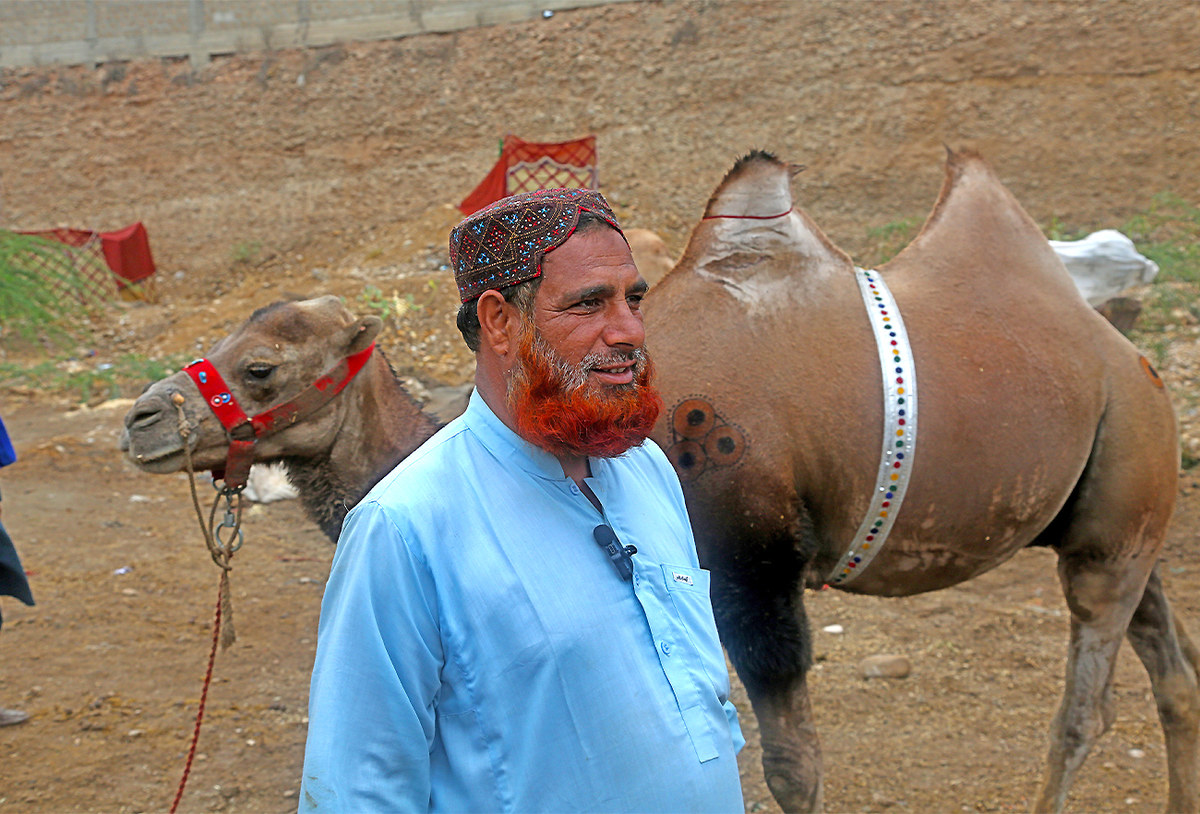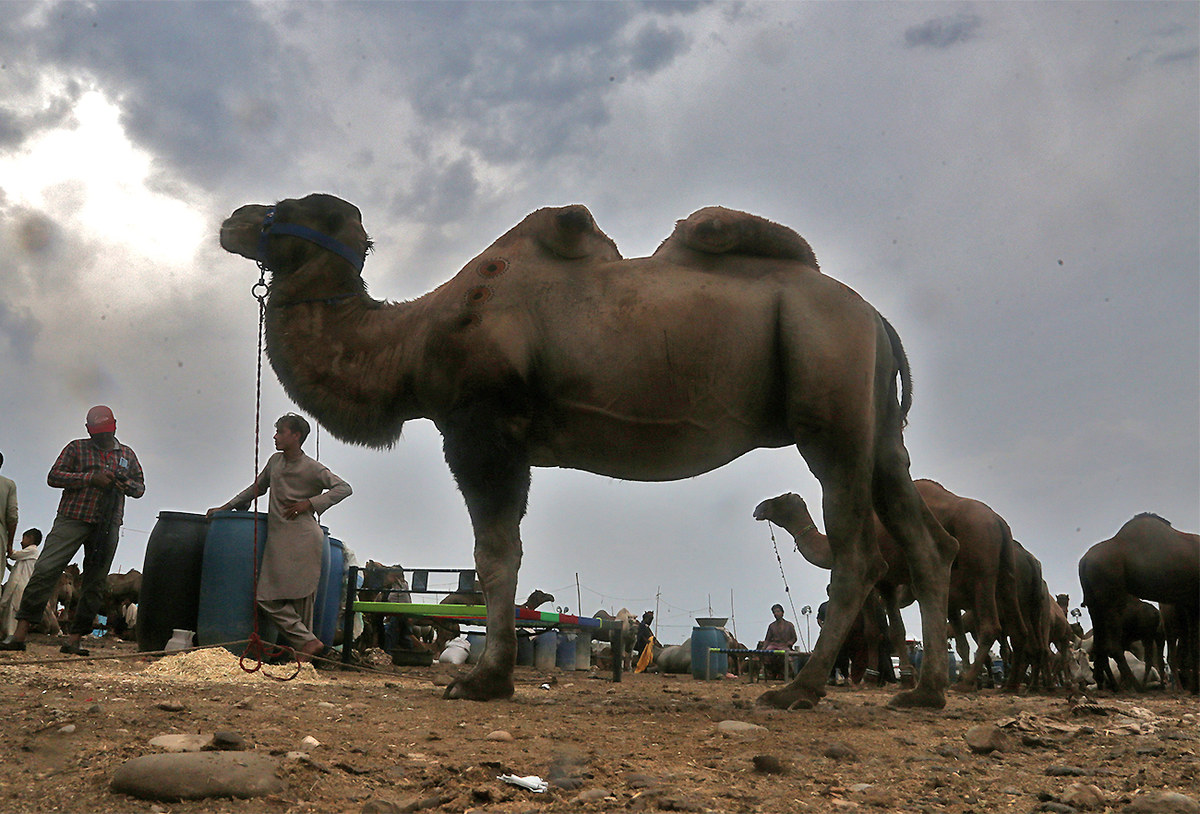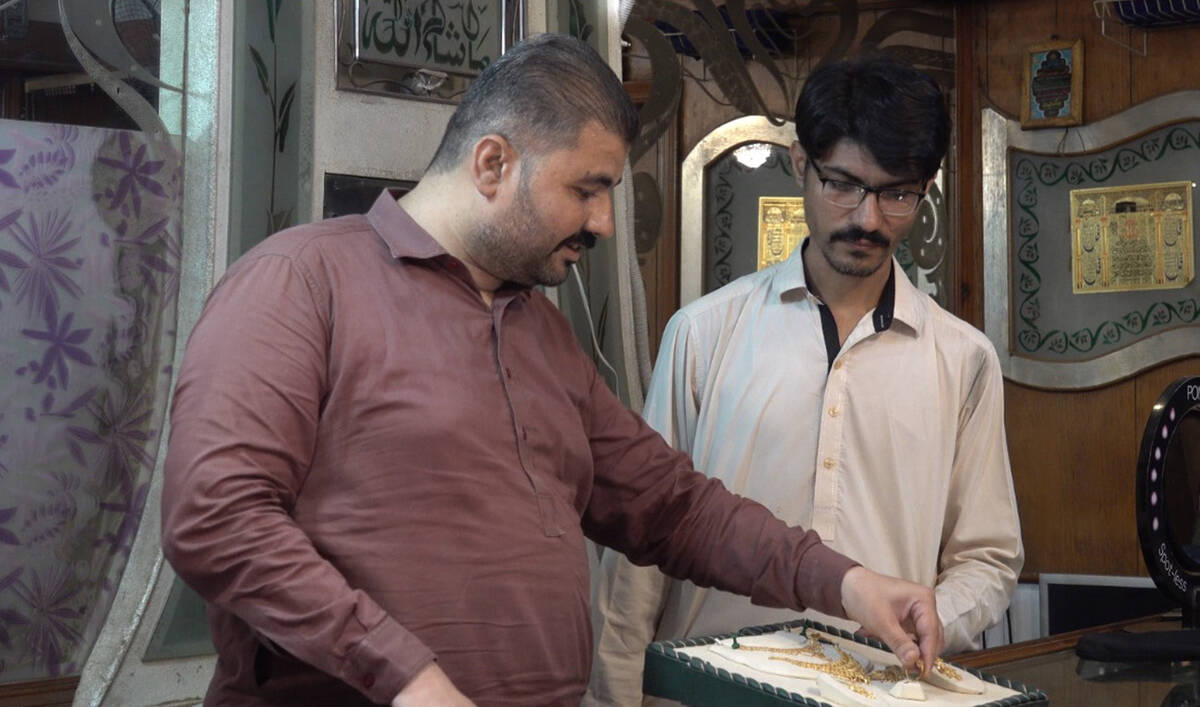KARACHI: While the Karachi Cattle Market, Pakistan’s largest, is generally a busy place ahead of the Eid Al-Adha holiday, one corner of the crowded bazaar stood out this week: the stall featuring three double-humped camels that their owner said were a Turkish breed.
Every year, sacrificial animals worth millions are bought and sold at the Karachi Cattle Market located on the outskirts of the megacity and spread over 2,000 acres of land. For sale this year are 425,000 animals, divided across 14 blocks in the bazaar.
While Muslims often slaughter sheep at the annual Eid Al-Adha “feast of the sacrifice” which falls on Sunday, many Pakistanis, especially the wealthy, think bigger, flocking to cattle markets to find camels for auction.
And so, while the loud voices of customers haggling over the prices of animals hung over the entire bazaar, they were the loudest at the Turkish camel stall, where a large crowd had gathered and many customers, young and old, posed for selfies.
A spokesperson for the cattle market, Asif Ali Syed, told Arab News over three thousand camels were up for sale at the bazaar.
“A thing which is less is rare, and people like rare [things],” Hajji Shahdad, the owner of the double-humped camels, told Arab News, saying he had brought six of the “special” camels from his hometown Quetta, the capital of Pakistan’s southwestern Balochistan province, and already sold off three.

Haji Shahdad, a trader from Quetta, seen with one of his two-humped camels at the Karachi Cattle Market, Pakistan, on July 4, 2022 (AN Photo by S.A.Babar)
Arab News could not independently verify if the camels were Turkish, though Shahdad said they were purchased by traders on the border of Turkey and then brought to Quetta via Afghanistan. One type of double-humped camel, the large Bactrian camel, hails from Central Asia.
“We had heard Karachi is a hub for passionate people,” he said. “This is why we looked after them [camels] for six to seven months and then brought them here for sale.”
Shahdad described his camels as “powerful and loyal creatures” that unlike Pakistani camels did not need to wear nose pegs, which are used to stir and brake camels and control them.
“The camels that we have in Pakistan have nose-pegs but no such thing on this,” he said, tapping the nose of one of his camels. “You can take it anywhere by just holding the rope ... It also sits in vehicles with ease.”

Two-humped camels at the Karachi Cattle Market, Pakistan, on July 4, 2022 (AN Photo by S.A.Babar)
But despite the camels’ unique traits, Shahdad said he was not able to fetch the prices he had hoped for.
While regular camels at the market sold for up to Rs800,000 ($3,850), he had sought a sum of Rs1,200,000-1,500,000 (up to $5,775) for his double-humped camels.
But the best offers he got ranged between Rs800,000-1,000,000 ($4,800).
“Everyone is offering prices according to their status,” Shahdad said, shrugging as he spoke about people’s reduced purchasing power this year due to soaring inflation, which has crossed 21 percent and is at a 13-year-high in Pakistan.
The livestock trader scoffed at other sellers who he said made up unique names and traits for their animals to spike the interest of buyers.
Reading off the names of some of the camels being sold at the market — Prince, or Sultan, which means emperor — Shahdad said he didn’t need gimmicks to sell his animals.
“These are two-humped camels,” he said with a smile as he patted an animal, “and famous with this name only.”
























